Revolution is in fashion and you are all dressed for the occasion
Why everything you wear is a political statement. (Yes, even if you just picked it off the floor).
I have this old black hoodie, I wear it all the time.
It’s from one of those old musty secondhand shops staffed by retired locals, me and a friend stopped by on a day out to the Yorkshire coast five years ago. About four pounds. UK students don’t dress fancy, we dress cheap.
I’m not stylish. When I was 18 my friends staged an intervention to get me to buy clothes that fit. And while I’ve made progress in that department - both my jeans and shirt are the right size today - fashion is never going to be my passion.
My fashion choices don’t feel very political or powerful. What ‘statement’ can an average hoodie have? Hey everyone, I don’t make an effort?
But people like me - we’re pretending it doesn’t matter to us. Every choice is saying something political and personal, even when you try to avoid it. Yes, even if you just order whatever’s on offer in Zara. Yes, even if you’re still wearing what your mum bought you years ago. Yes, even if - like me - you don’t really think about what you’re wearing.
That trendy on-sale top says “I am a busy young adult in Europe and grew up in a culture of getting all my essentials at H&M.” That tailor-made pantsuit with the red lipstick says, “I am a badass professional woman and command respect.” That fleece and hair-tie and tired expression says “I barely have time to sleep because this economy means I can work two jobs and still struggle to pay rent - how can I think about fashion now?”
Or for me, the hoodie says to everyone else This woman works from home or maybe This woman isn’t a real professional.
Whatever. It says to me Remember that once buying a secondhand hoodie in Scarborough was a luxury to you. That sustainable fashion might not look the same for me or for you because we do what we can with the money, time and knowledge we have.
It’s an anchor to the past, if we want to get romantic about it. It’s a reminder to me that if I reject the typical career path, why would I try to dress for the traditional job? My own reflection tells me that I can dress myself, furnish my room and pay my bills without giving a cent to big exploitative unsustainable industries.
There is no such thing as opting out of politics. Every clothing item, everything in our cupboards, everything we buy - it is a story of what it means to be a person in this tipping-point era and the clash between cultivating the world and the identity we want, and the one that is thrust upon us.
Image: I’m a whole different person in 2023 but hey, same hoodie.
***
Help keep the Green Fix running! The newsletter is volunteer-run. If you find this newsletter useful, please consider tipping a virtual coffee.
What’s Going On?
How the beef industry is systematically spreading climate disinformation.
Related: Reducing meat and dairy is single biggest way to reduce environmental impact.EU firms are exporting toxic pesticides to Brazil farms that supply Nestle.
Related: European hazardous pesticides end up in food around the world.Fossil fuel company BP faces shareholder rebellion over weakened climate goals.
Related: King Charles helped BP with its greenwashing.Oil company TotalEnergies makes bizarre move to sue Greenpeace for pointing out their carbon emissions.
Related: Greenpeace also sued TotalEnergies for misleading net-zero advertising.Togo aims to plant 14 million trees by June 2023.
Related: While rest of world procrastinates, Togo is also slashing air pollution levels.
Focus On… The Power of Fashion
Cass talks to activists and experts from the sustainable fashion industry about what power in fashion means.
“I’m going to start by talking about how personal fashion choices are political,” Tena said.
I said “Right,” as if I knew what that meant.
I was at an event for Fashion Revolution Week. My friend and sustainable fashion writer Tena Lavrenčić - who always looks like she’s stepped out of the nearest high-concept fashion catalogue - shepherded us into this beautiful sustainable concept store in Brussels and was talking through the schedule.
Someone next to me was talking about how they invest in sustainable statement items from a small business in Portugal. Everyone was dressed for activism and style. I was acutely aware I was dressed for graffitiing a local playground after dark.
“You’ll see what I mean,” said Tena.
Fashion is a source of political power
Tena said:
Fashion is political because it is a product of a particular political and economic context. The fashion industry is shaped by political decisions, power dynamics, and global exchange. The whole history of fashion is a story between reinforcing and challenging or negotiating different ideas, ideologies, systems, and powers. In other words, history is full of fashion activism.
But there’s a particular beauty in it. While it is true that fashion and our clothes can reinforce the existing power dynamics and political ideas, they can also challenge them!
Each of us has fashion powers: as consumers, as businesses, as teachers, as makers. And most importantly: as citizens.
Suddenly my outfit felt like an expose of my demographic. Didn’t I decide to only get clothes secondhand to reject the exploitative and environmentally destructive fast fashion industry?
Every time I go to a secondhand shop I’m aware that that shirt, that I feel so morally superior for thrifting, made its way to my wardrobe from another continent, where a woman I don’t know spent hours making identical shirts for other people like me.
What’s her name? Does she get a fair wage? How long did the previous hoodie-owner wear it before chucking it? I don’t know, and the not knowing is one of the most damning problems in a hyper-globalised industry that makes it normal to not know who made our clothes, or where, or with what.
Instead we shrug with an air of helplessness to say this isn’t my problem, it’s a Global Issue. How clever of extreme capitalist neoliberal economies to trick us to think we are helpless to do anything except consume.
Globalised economics aside, I was not convinced that my wardrobe would change anything. These are personal choices. I know I got it secondhand, but who can tell just from looking?
Fashion has personal power
Lynn Mikolajczak is a lawyer, fashion entrepreneur and trend researcher who founded The Acquired, a ‘digital wardrobe solution.’
Given her email address and little to no idea of what a digital wardrobe solution means, I sent her an email and asked what power in fashion means to her. She said:
Fashion has always been a tool for self-expression and communication. Fashion has 3 dimensions: external, internal professional, and internal personal. The external dimension of clothing is how others will see you and what they will think about you. The internal personal dimension is how clothing makes you feel and how you think about yourself. The internal professional dimension is how you perform and how you behave.
Wearing clothes that make us feel confident and comfortable can give us personal power and project an image to the world. Using your style right and making sure it reflects your values can enhance your political power. It will enhance your voice and credibility which makes sure that you will be seen and heard.
And what is a ‘wardrobe solution,’ you might wonder?
When you don't really take the time to understand why you like something, chances are high you end up with a lot of items or a wardrobe that doesn't reflect your style and work for you. That's not sustainable. I advocate (re)discovering your personal style in order to build a sustainable closet.
Once you have clarity about this, you can look at what you already have in your closet and make optimal use of it. If you want to fill certain gaps, you can spend a little more on durable items. You will wear the items longer because they fit you and your closet and are of better quality.”
OK but I want to dismantle the whole fast fashion industry too. How does my style do that?
Personal power for sustainable fashion doesn’t start and end with our wardrobe. The clothes we wear, they are a reflection of our time and identity - but they’re also a constant reminder of our values and what we’re doing all this for. If we’re willing to change our whole wardrobe for items that don’t exploit human rights or degrade the environment, what else are we willing to change?
More concretely, you can sign the Good Clothes Fair Pay petition to demand Members of the European Parliament respect living wages for garment workers. Or get involved in sharing Fashion Revolution Week social media assets. Or ask big brands #WhoMadeMyClothes? Or tag or email your local MEP and demand a transition into circular and lower-impact textile production.
The event on the 29th was organised by Thinking Threads in collaboration with Fashion Revolution Belgium, Lokal Store, and Matunda Drinks.
So Now What Do I Do?
LEARN MORE
Register to join the EU Beyond Growth Conference online (in-person booking closed) 15 - 17 May.
Join the EU Youth Dialogue on climate education with the Swedish presidency online on the 17th May.
TRY SOMETHING NEW
[not free] Early bird tickets for the Alt Shift Festival this August are available until the 15 May! They’re also looking for workshop organisers.
Join this online training by #StopRosebank on what inclusion and access mean in activist campaigns. 17 May.
Apply to be part of the Global Youth SDG Storytelling and Research Lab by the 25th May.
CHANGE THE SYSTEM
Closing today! The Council of Europe is looking for youth representatives to be on their advisory council. Deadline 10 May at 18h CET.
Tell the EU to recognise the right to a healthy environment ahead of a major summit with Youth & Environment Europe’s free social media toolkit.
Applications have opened for the 2023 Sister-to-Sister feminist peacebuilders leadership program! (Say that 5 times fast)
By the way…
The Green Fix is now offering low-cost sponsored slots on the newsletter. Book your slot by emailing casshebron@gmail.com
If you have a topic you want the Green Fix to cover, fill out this feedback form & tell us your idea!
Stay in the loop
You can also follow the Green Fix Twitter and LinkedIn page here for more climate opportunities. You can also connect with Cass on Instagram, Twitter and LinkedIn.
Know someone interested in environmental issues? Forward this email to them - we want to reach people who care about doing more for the planet, with your help.






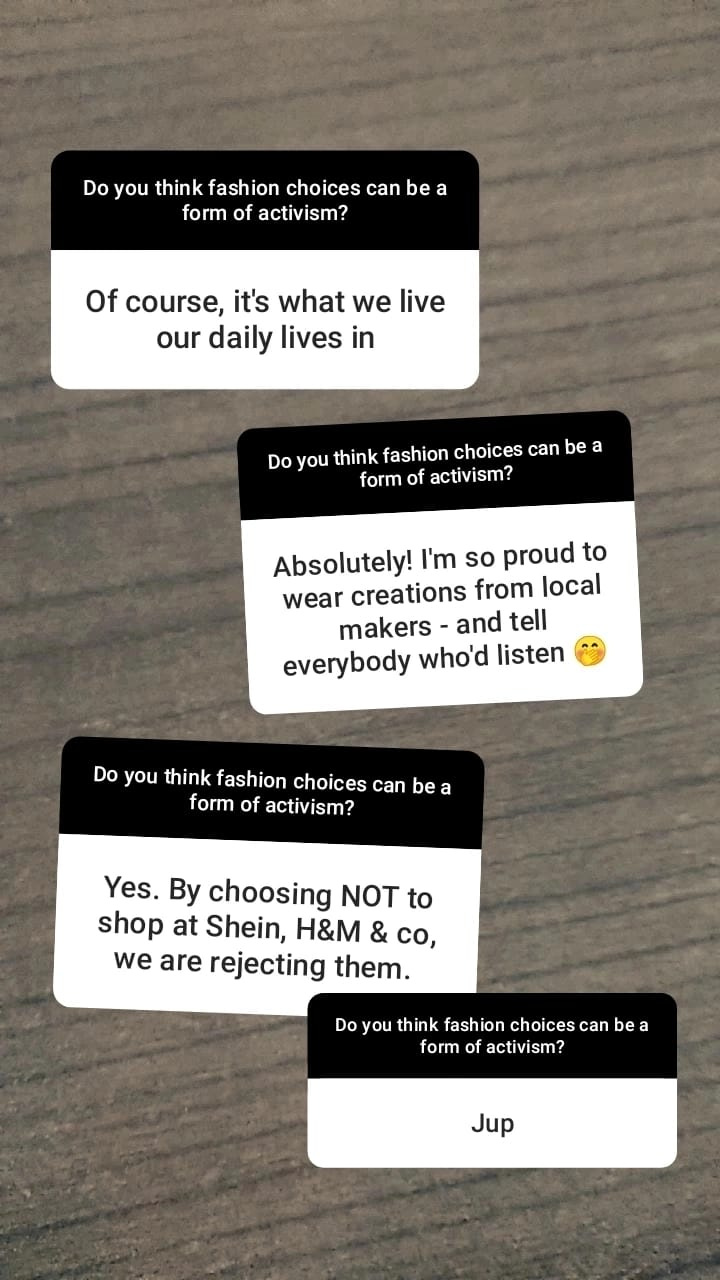

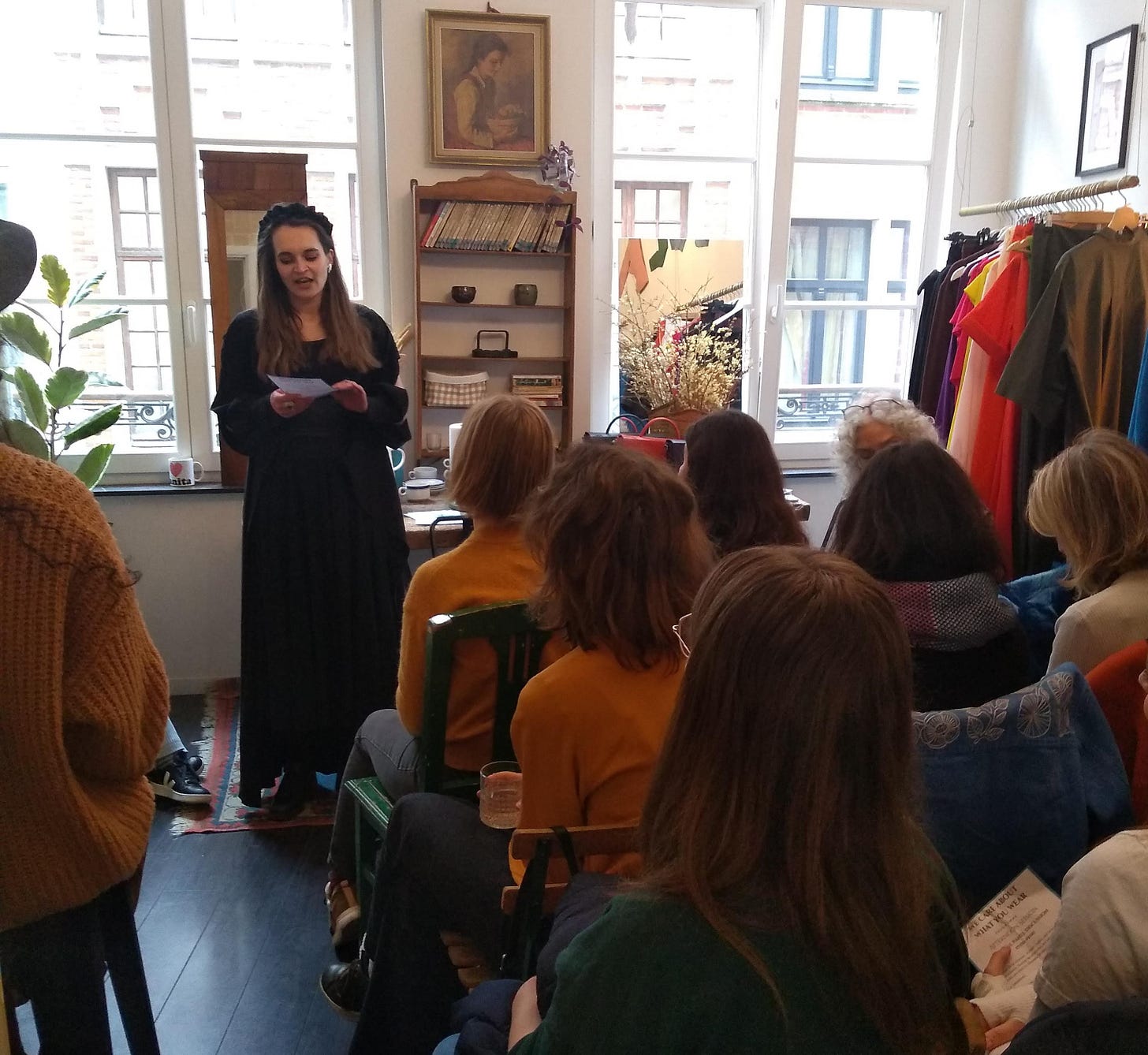
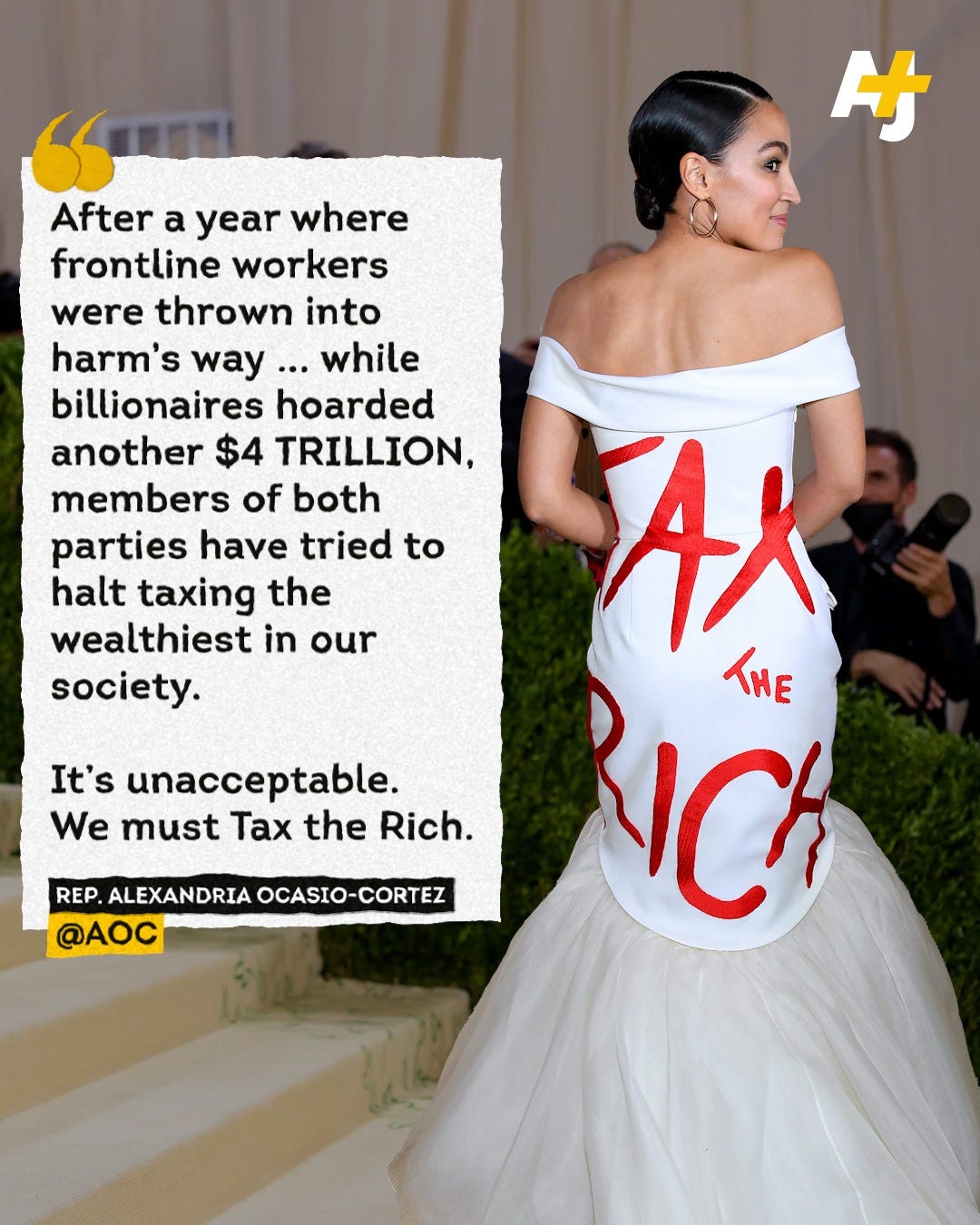
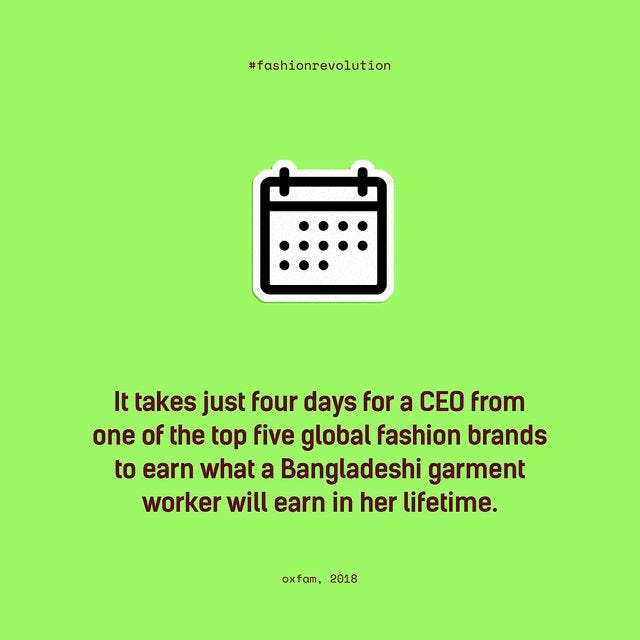
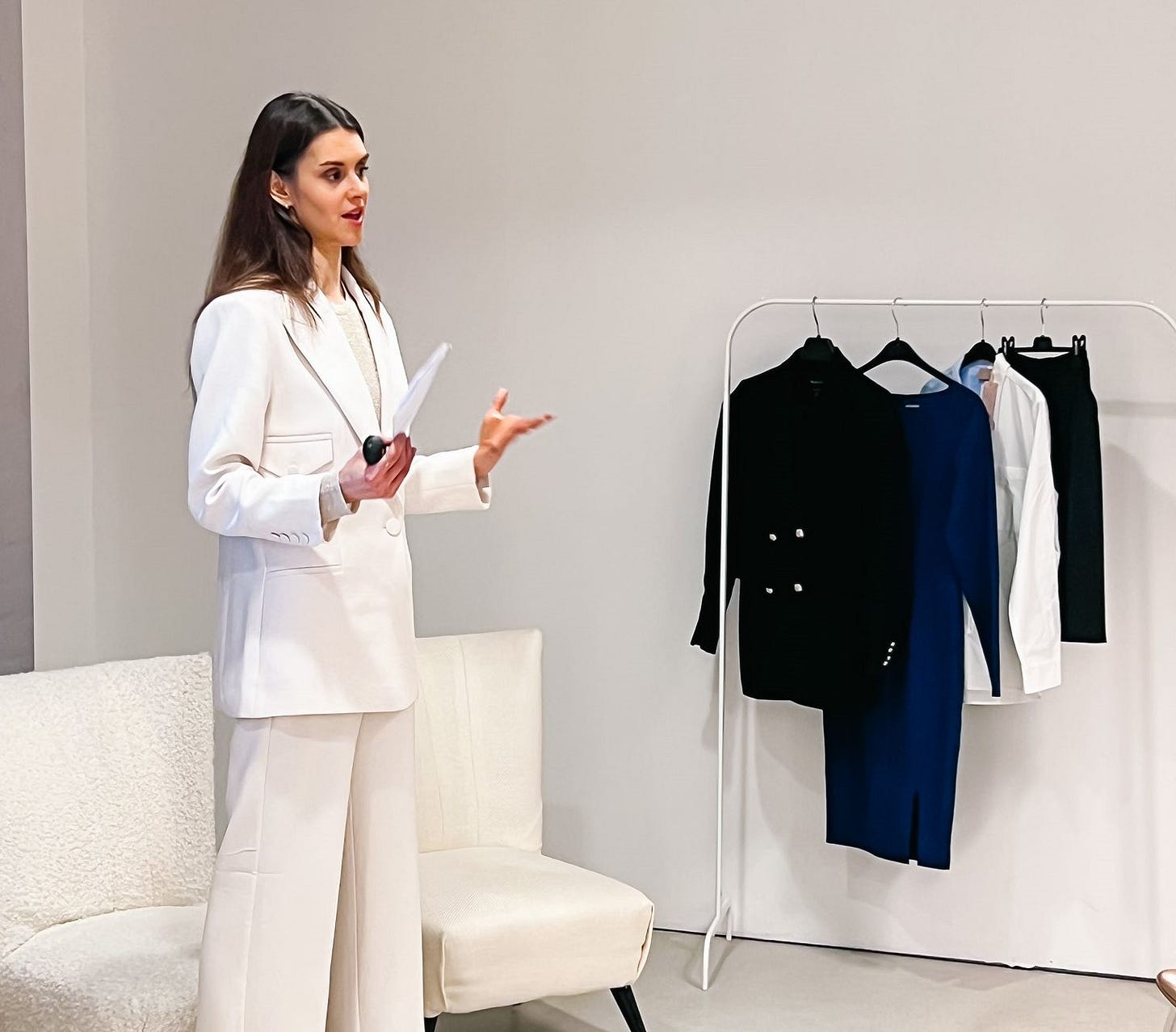

This is SUCH an interesting post! I've been buying pretty much all second hand for a few years now, but I always have that niggling guilt about who actually made the clothes. I also wonder if me buying some girly's second hand Shein dress is just going to make her buy more Shein dresses?!? This was such a strong point " If we’re willing to change our whole wardrobe for items that don’t exploit human rights or degrade the environment, what else are we willing to change?"
I'm so long past giving a damn about fashion. My clothes are so old they have the proverbial whiskers. :)
In fact, I hate shopping for clothes. What's wrong with what I've got? It's paid for and it still fits. It's clean and I do work at home, so ... end of discussion! :)